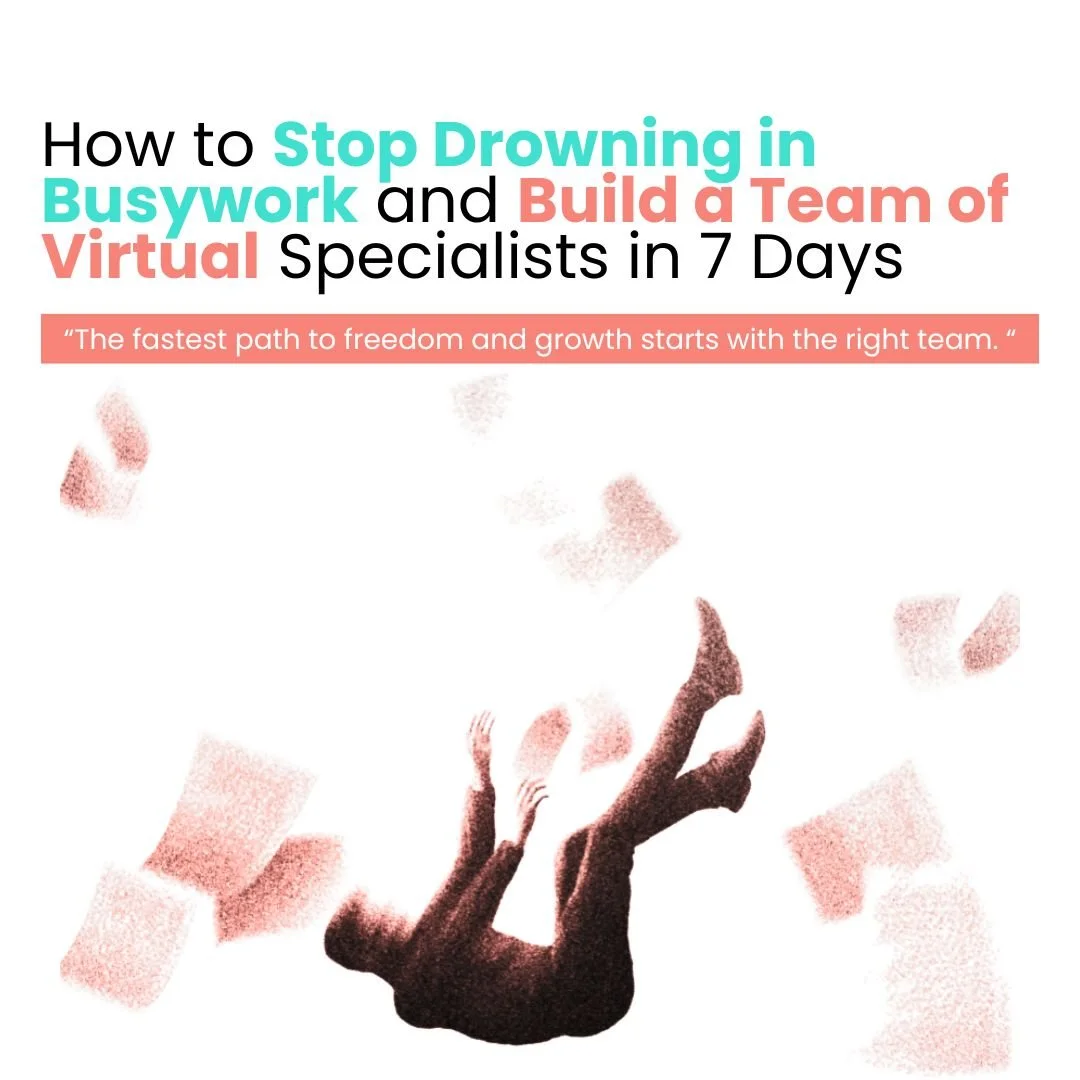Should I Hire a Web Developer or Build It Myself?
Hiring a web developer is choosing a professional to build and maintain a website, while DIY involves creating it yourself using platforms, tools, and templates.
There’s a question almost every business owner asks at some point: Should they pay a professional to build their website, or should they try to do it themselves? For some, the idea of doing it alone seems attractive; after all, there are so many DIY tools available now that promise quick, professional-looking websites in just a few clicks. But for others, the thought of launching a site without expert guidance feels risky and overwhelming.
However, there isn’t one simple answer. The real decision depends on your goals, your budget, and how much time you’re willing to invest.
This guide breaks it all down so you can finally answer the question: should I hire a web developer or go the do-it-yourself route?
Related Article: How to Outsource Website Design to a Virtual Assistant
ARE YOU STILL TRYING TO DO IT ALL?
Discover the SMART way to delegate without losing control—and finally free up your time.
Do I Need to Hire a Web Developer?
Before jumping into costs, pros, or cons, the first step is understanding whether a web developer is even necessary for your situation. Not every business needs a fully customized website, but almost every business needs a functional, reliable, and professional-looking online presence.
A web developer brings more to the table than just design. They build the site’s foundation, handle technical details, and ensure the website can grow as your business grows. They can create custom features such as booking systems, online stores, or password-protected areas for members. They also know how to structure a site so it’s faster, easier to navigate, and better positioned for search engine visibility.
On the other hand, if all you need is a basic “digital business card” with simple contact details, service descriptions, and an about page, then a DIY website builder might be enough to get you started. These platforms are designed to be beginner-friendly and give small businesses a way to quickly get online without spending thousands.
The real question to ask is: What are your business goals for your website? If you want it to be a lead-generating tool, a strong marketing channel, and a credible representation of your brand, then the answer really is to hire a web developer. But if you only need something minimal, DIY might work for now.
8 Pros of Hiring a Web Developer
Hiring a professional comes with a number of advantages, many of which directly impact how customers perceive your business and how successful your website will be over time.
1. Professional Quality
A web developer can create a site that looks like it was built by a professional brand, not by an amateur. Design is more than just colors and fonts; it’s also about balance, spacing, and functionality. A polished site looks trustworthy and often converts more visitors into customers.
For example, consider two restaurants: one uses a DIY builder with a generic template, while the other hires a developer who integrates online reservations, menu filtering, and professional images. Customers are more likely to choose the second restaurant because the website communicates credibility and convenience.
2. Customization
DIY platforms limit you to the features their templates provide. A developer, however, can build features that directly fit your business needs.
Let’s say a salon may want customers to book appointments by stylist, service, and available time slots. A template might not allow this flexibility, but a developer can create a custom booking system that makes scheduling smooth and hassle-free. Choosing to hire a web developer means your website is tailored for you, not forced into a one-size-fits-all box.
3. Better Performance
Website performance is about speed, responsiveness, and reliability. A developer understands how to compress images, use clean code, and optimize hosting so the site loads quickly. A slow site can frustrate visitors and cause them to leave before exploring your services.
Take e-commerce businesses as an example: if your online store takes 6 seconds to load instead of 2, studies show customers are far less likely to complete a purchase. A developer can help avoid this loss in sales by building a faster, smoother experience.
4. Stronger SEO Foundation
Search engines look at more than words; they consider coding structure, site maps, mobile responsiveness, and page load speed. Developers know how to set up a site that search engines can crawl and rank.
For instance, a local law firm that relies on Google searches for “attorney near me” will gain more visibility if its site is built with proper tags, headings, and mobile responsiveness. A DIY builder may miss these behind-the-scenes elements, while a developer ensures they’re included.
5. Time Savings
Building your own site might save money, but it costs time, sometimes months of trial and error. A developer can build a site faster and more efficiently, allowing you to focus on business operations instead of troubleshooting plugins or fixing formatting issues.
For example, a business owner who spends 40 hours struggling with design might miss opportunities to grow their business. By hiring a developer, they can redirect that energy toward clients, sales, and strategy.
6. Long-Term Support
Websites aren’t finished once they launch. They require updates, bug fixes, and new features as the business grows. With a developer, you’ll always have someone to turn to when the site needs attention.
Imagine an e-commerce store during the holiday season: if the checkout process suddenly breaks, having a developer on call ensures it gets fixed quickly. Without support, the business risks losing sales during its busiest time of the year.
7. Increased Credibility
A professional site builds trust. Customers often associate the quality of your website with the quality of your services. An outdated or unpolished site can send the wrong message.
For example, if a potential client is deciding between two consulting firms, one with a generic DIY website and another with a custom-built, professional site, hey’re more likely to choose the firm that presents itself with higher credibility.
8. Competitive Advantage
In crowded markets, standing out matters. A developer can create a unique design and user experience that makes your site memorable compared to competitors using cookie-cutter templates.
Think of an online clothing boutique. Hundreds of others might use Shopify’s standard templates, but a developer can design a branded shopping experience with custom product filtering, interactive lookbooks, and seamless checkout. That difference helps your store stand apart.
5 Cons of Hiring a Web Developer
While the benefits are clear, there are also drawbacks to consider before deciding to hire a web developer. Being aware of these challenges helps business owners make a balanced, informed choice.
1. Higher Cost
This is the most obvious downside. Professional websites often cost thousands of dollars, depending on complexity. For a small startup or side hustle, that investment may feel too high when compared to a $15-per-month DIY platform.
For instance, a bakery that just wants an online menu may not need to spend $3,000 on a developer. A simple DIY website might meet their needs at a fraction of the cost.
2. Longer Timelines
A developer-built site usually takes more time to launch. Unlike a drag-and-drop site, which you can publish in a weekend, custom websites often involve planning, revisions, and testing. This can take weeks or months.
If you need a landing page tomorrow to run ads, a developer may not be the fastest option. DIY builders can be helpful for urgent launches, even if they’re less polished.
3. Less Control
When working with a developer, you give up some control. You’ll provide input and feedback, but you won’t be making every small adjustment yourself. Some business owners find this frustrating, especially if they enjoy having a hands-on role.
For example, if you want to change the color of a button at midnight, you can easily do this on Wix. With a custom site, you may need to ask your developer to make the change.
4. Ongoing Expenses
Even after the website is live, there may be costs for hosting, maintenance, or adding new features. Developers may charge hourly rates for updates, which means the investment continues beyond the initial project.
For instance, if you decide to add an e-commerce store a year later, that will likely involve extra development costs. While this keeps your site professional, it’s an expense to factor into your budget.
5. Dependence on Another Person
If your developer becomes unavailable, maintaining or updating the site can be difficult. Custom-coded sites aren’t always easy for another person to pick up, especially if there’s no clear documentation.
For example, if your developer moves on and you need urgent help with your site, it may take time to find another professional who understands the way it was built. This dependence can feel risky for some businesses.
Cost Comparison: DIY vs Hiring a Developer
Money is often the deciding factor, so it’s worth breaking down the differences clearly.
DIY website builders such as Wix, Squarespace, and Shopify are affordable. Pricing ranges from $10 to $50 per month, with some additional costs for premium apps, plugins, or themes. These tools are simple to use, so the only real cost is the monthly fee plus the time you spend building and maintaining the site.
WordPress is another popular option. While the software itself is free, you’ll need to pay for hosting, a domain name, and possibly premium themes and plugins. This usually adds up to a few hundred dollars per year.
Hiring a developer is a bigger upfront investment. A basic custom site may start at $2,000, while more advanced websites can cost much more. The price depends on the features you need, the developer’s expertise, and how complex the project is.
The choice isn’t just about price, it’s also about value. DIY saves money upfront but may limit growth later. Hiring a developer costs more initially but provides flexibility, customization, and long-term benefits. That’s why the question, “Should I hire a web developer?” is really about your priorities and business goals, not just your budget.
Which Option Is Right for You?
So, which is the better choice: building your site yourself or choosing to hire a web developer?
DIY is usually best for those who:
Have a very limited budget.
Only need a simple informational site.
Have the time and willingness to learn a new platform.
Don’t need advanced features right away.
Hiring a developer is better for those who:
Need advanced features like online stores, custom apps, or booking systems.
Want a scalable site that grows with their business.
Prioritize SEO, performance, and professional branding.
Don’t have the time to build and maintain a site themselves.
The right option depends on your situation, but the key is to be honest about your long-term goals. If your website will play a major role in attracting customers and generating revenue, then investing in professional help may be the smartest move.
Related Article: How To Find A Web Developer this 2023
Conclusion
Smart Virtual Assistants
👍🤵
Smart Virtual Assistants 👍🤵
At the end of the day, the decision isn’t just about money—it’s about value, time, and long-term business growth. A do-it-yourself approach can work for some, but for those who want to scale and compete at a higher level, the question: Should I hire a web developer, often leads to a yes.
And for businesses that want a truly professional online presence, Smart VAs provide a complete web development team. That means you get a skilled web designer to create the structure, a graphic artist to craft visuals that capture your brand, a copywriter to write engaging content, and an SEO specialist to make sure your site ranks where it should. Instead of piecing things together on your own, you can have an entire team of specialists working together to build a website that not only looks good but also performs well.
With Smart VAs, you get a powerful online platform designed to help your business grow. Book a call now!
READY TO FINALLY DELEGATE LIKE A CEO?
Learn the 7-day plan to build your dream VA team and step out of the weeds.
Frequently Asked Questions:
-
Yes, it’s usually cheaper to build a website yourself using platforms like Wix, Squarespace, or WordPress templates. However, while upfront costs are lower, the site may lack the customization, scalability, and polish that come from choosing to hire a web developer. In the long run, investing in professional help can bring higher returns.
-
If your business needs a custom design, advanced features, or strong SEO foundations, then the answer to “should I hire a web developer?” is yes. DIY platforms are fine for simple sites, but when growth and professional credibility are priorities, a developer can provide the right solution.
-
Some of the most popular options include Wix, Squarespace, and WordPress. These platforms offer user-friendly tools for beginners, making it possible to create a decent site without needing to hire a web developer. However, they do have limitations compared to a professionally developed site.
-
Yes, starting with a DIY platform can help you launch quickly. Smart VAs can later transition your site to a custom-built platform that supports advanced features, SEO, and scalability.
-
The timeline depends on complexity and features. Smart VAs typically delivers fully functional, customized websites in weeks, allowing your business to go live faster with a polished and reliable platform.
Ready to Work Smarter, Not Harder?
Smart VAs provides a team of highly skilled specialists from around the world, ensuring seamless support no matter the time zone. We take pride in delivering efficient, fast, and high-quality service so you can focus on growing your business. With one subscription plan, you gain access to a complete team of digital marketing experts that’s customized to your unique needs, eliminating the need to train and look for one yourself!









